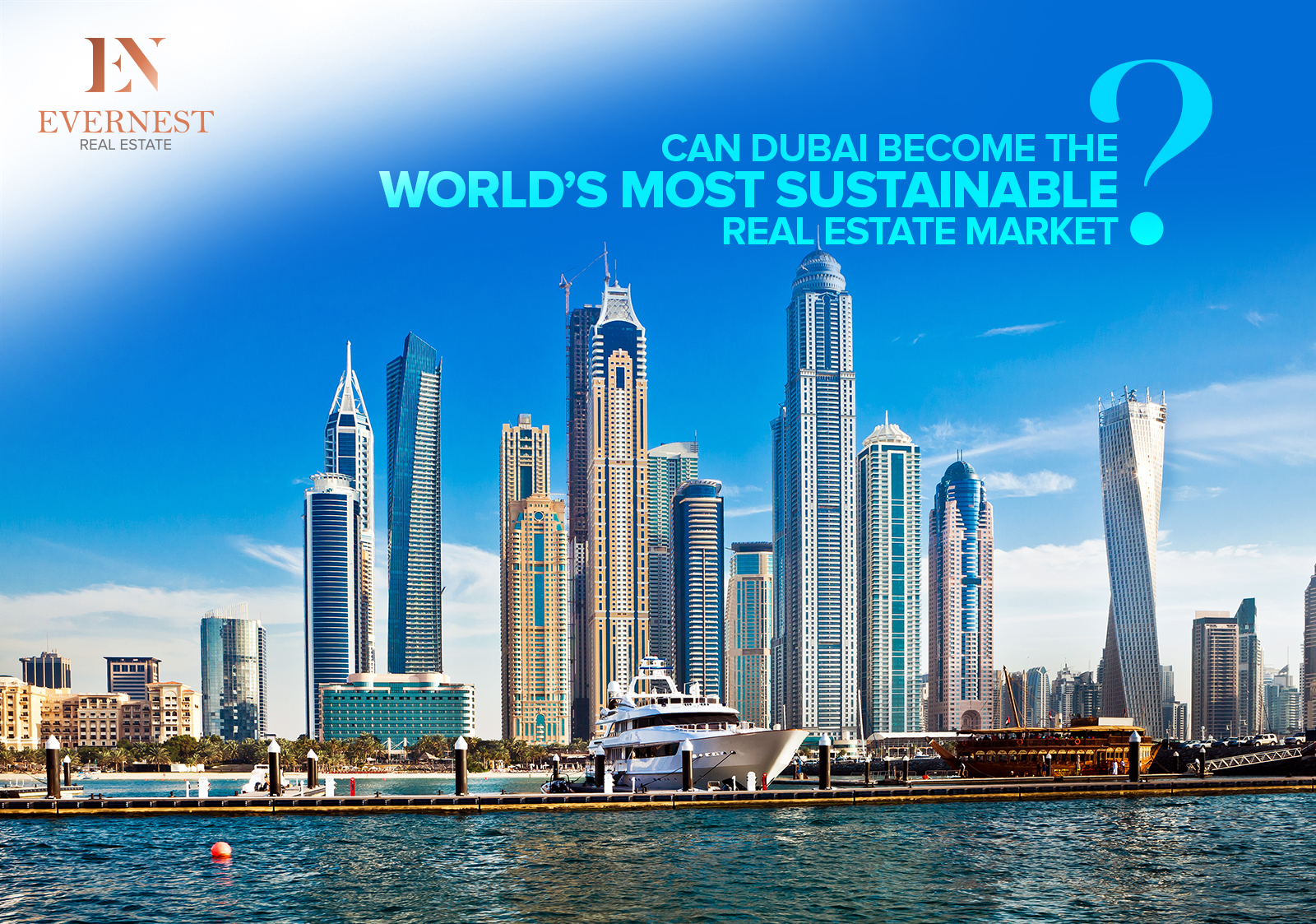
Dubai has long been synonymous with luxury, innovation, and ambitious architectural feats. From the soaring Burj Khalifa to man-made islands, the city has set benchmarks in global real estate. Yet, as climate change and environmental concerns rise, the question emerges: can Dubai evolve into the world’s most sustainable real estate market?
Sustainability in real estate extends beyond green aesthetics—it’s about building smartly, minimizing environmental impact, and creating developments that are both economically and socially responsible. Dubai has already taken notable steps toward this vision. The city’s commitment to the Dubai Clean Energy Strategy 2050 and initiatives like Green Building Regulations demonstrate a regulatory framework designed to encourage eco-conscious construction. Developers are increasingly incorporating energy-efficient designs, solar panels, water-saving technologies, and sustainable materials into their projects.
A shining example is Masdar City, a project that blends sustainable urban planning with smart infrastructure. Similarly, luxury developers are integrating sustainability without compromising on the opulence Dubai is known for. From eco-friendly villas in desert communities to green-certified high-rise towers, the message is clear: sustainability and luxury can coexist.
Investor interest is another driving force. Today’s global investors are not only seeking high returns but also projects aligned with ESG (Environmental, Social, and Governance) standards. Dubai’s real estate sector, with its innovative approach to sustainable living, is positioned to attract capital from investors who value both profitability and positive environmental impact. As ESG-conscious investment grows, properties with green certifications and energy-efficient designs are becoming more attractive, ensuring long-term value retention.
Technology is a key enabler. Smart home systems, IoT-enabled energy management, and AI-driven building maintenance are increasingly standard in new developments. These innovations not only reduce operational costs but also optimize resource usage, reinforcing sustainability. For example, predictive energy management can cut electricity consumption by up to 30%, while smart water systems minimize wastage in high-rise buildings.
Challenges remain, of course. Dubai’s rapid growth, high-rise culture, and desert climate make sustainability complex and costly. However, the government’s proactive approach, combined with forward-thinking developers, is creating a pathway toward sustainable urban development. Collaborative efforts between public policy, private development, and investor engagement are crucial to scaling these initiatives city-wide.
In conclusion, Dubai is not starting from scratch—it’s leveraging its ambition, wealth, and innovative culture to position itself as a global leader in sustainable real estate. By blending eco-consciousness with cutting-edge technology and investor interest, Dubai has the potential to redefine luxury living while minimizing environmental impact. The dream of becoming the world’s most sustainable real estate market is within reach, provided the momentum continues and sustainability becomes a core, non-negotiable principle in all future developments.
Dubai’s skyline may already dazzle the world, but the next frontier is a skyline that sustains the planet.

Dubai has long been synonymous with luxury, innovation, and ambitious architectural feats. From the soaring Burj Khalifa to man-made islands, the city has set benchmarks in global real estate. Yet, as climate change and environmental concerns rise, the question emerges: can Dubai evolve into the world’s most sustainable real estate market?
Sustainability in real estate extends beyond green aesthetics—it’s about building smartly, minimizing environmental impact, and creating developments that are both economically and socially responsible. Dubai has already taken notable steps toward this vision. The city’s commitment to the Dubai Clean Energy Strategy 2050 and initiatives like Green Building Regulations demonstrate a regulatory framework designed to encourage eco-conscious construction. Developers are increasingly incorporating energy-efficient designs, solar panels, water-saving technologies, and sustainable materials into their projects.
A shining example is Masdar City, a project that blends sustainable urban planning with smart infrastructure. Similarly, luxury developers are integrating sustainability without compromising on the opulence Dubai is known for. From eco-friendly villas in desert communities to green-certified high-rise towers, the message is clear: sustainability and luxury can coexist.
Investor interest is another driving force. Today’s global investors are not only seeking high returns but also projects aligned with ESG (Environmental, Social, and Governance) standards. Dubai’s real estate sector, with its innovative approach to sustainable living, is positioned to attract capital from investors who value both profitability and positive environmental impact. As ESG-conscious investment grows, properties with green certifications and energy-efficient designs are becoming more attractive, ensuring long-term value retention.
Technology is a key enabler. Smart home systems, IoT-enabled energy management, and AI-driven building maintenance are increasingly standard in new developments. These innovations not only reduce operational costs but also optimize resource usage, reinforcing sustainability. For example, predictive energy management can cut electricity consumption by up to 30%, while smart water systems minimize wastage in high-rise buildings.
Challenges remain, of course. Dubai’s rapid growth, high-rise culture, and desert climate make sustainability complex and costly. However, the government’s proactive approach, combined with forward-thinking developers, is creating a pathway toward sustainable urban development. Collaborative efforts between public policy, private development, and investor engagement are crucial to scaling these initiatives city-wide.
In conclusion, Dubai is not starting from scratch—it’s leveraging its ambition, wealth, and innovative culture to position itself as a global leader in sustainable real estate. By blending eco-consciousness with cutting-edge technology and investor interest, Dubai has the potential to redefine luxury living while minimizing environmental impact. The dream of becoming the world’s most sustainable real estate market is within reach, provided the momentum continues and sustainability becomes a core, non-negotiable principle in all future developments.
Dubai’s skyline may already dazzle the world, but the next frontier is a skyline that sustains the planet.
We have covered many special events such as fireworks, fairs, parades, races, walks, awards ceremonies, fashion shows, sporting events, and even a memorial service.
Lorem ipsum dolor sit amet, consectetur adipiscing elit. Curabitur vulputate vestibulum rhon cus, dolor eget viverra pretium, dolor tellus aliquet nunc, vitae ultricies erat elit eu lacus. Vestibulum non justo fun consectetur, cursus ante, tincidunt sapien. Nulla quis diam sit amet turpis interd enim. Vivamus fauc ex sed nibh egestas elementum. Mauris et bibendum
Write your comment